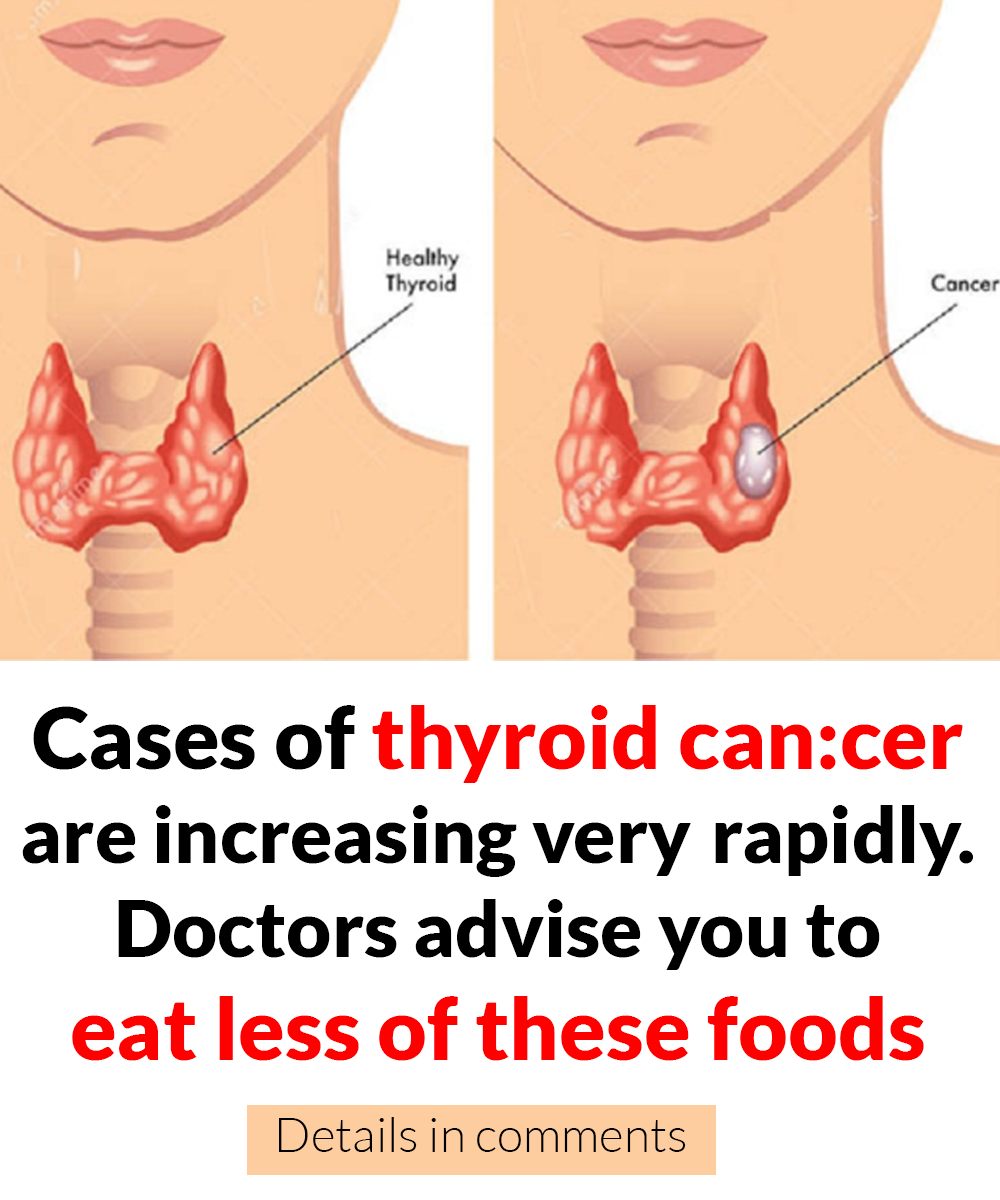Thyroid cancer cases are rising quickly, and while experts aren’t entirely sure what’s behind the surge, they’ve identified a number of potential contributing factors. These include exposure to radiation, a lack of iodine in the diet, genetic mutations, and a family history of thyroid disease. Other risk factors are an enlarged thyroid (goiter), thyroiditis (inflammation of the thyroid gland), obesity, and radiation therapy to the head or neck—particularly during childhood. There’s also an increased risk for those exposed to radioactive fallout from nuclear accidents or weapons. With so many factors at play, doctors are urging people, especially those diagnosed with thyroid tumors, to pay close attention to their diets and reduce the intake of certain foods that can hinder thyroid function or interfere with treatment.

First on the list are cruciferous vegetables like kale, bok choy, and cabbage. These contain goitrogens—compounds that can block iodine absorption and reduce thyroid hormone production. Eating them raw, especially in large quantities, may raise the risk of developing a goiter or thyroid nodules. Cooking these vegetables helps break down goitrogens, making them safer in moderation, but they should still be consumed carefully by anyone managing thyroid issues.
Next are soy products, which include tofu, soy milk, and edamame. Soy contains high levels of isoflavones, which can interfere with the thyroid’s hormone production process. While soy isn’t completely off-limits, individuals who rely on thyroid hormone replacement therapy—especially after surgery—should monitor their soy intake closely to avoid interfering with medication absorption.
Processed foods packed with additives, unhealthy fats, and excess sodium can also disrupt thyroid hormone production. Items like canned goods, packaged snacks, and fast food typically lack essential nutrients but are loaded with preservatives and artificial ingredients. These kinds of foods can slow down the effectiveness of thyroid treatment, so eating whole, fresh foods is always a better option.
Caffeine is another thing to keep in check. While not completely banned, consuming coffee or caffeinated products too close to taking thyroid medications can reduce how well the body absorbs those drugs. Doctors recommend avoiding caffeine for at least an hour before and after taking thyroid medication, especially since caffeine can cause side effects like rapid heartbeat or shortness of breath.
Alcohol is a major no-go for thyroid health. It damages thyroid cells, interferes with hormone production, and adds unnecessary toxins to the body. Regular alcohol consumption can affect not only the thyroid but many organs in the body. For people with thyroid disorders or those undergoing treatment, staying away from alcohol is crucial for recovery and overall health.
While iodine is essential for thyroid hormone production, both too much and too little can be harmful. Patients scheduled for radioactive iodine treatment need to avoid iodine-rich foods like seaweed and shellfish beforehand to make the treatment more effective. Afterward, they should continue to regulate iodine intake to avoid disrupting the thyroid’s balance.
After thyroid surgery, it’s important to avoid hard or dry foods such as seeds, raw legumes, beef jerky, grilled meats, and dried squid. These foods can be difficult to chew or swallow, cause indigestion, and even interfere with surgical wound healing. Soft, easy-to-digest meals are ideal during the recovery period.
Gluten is another potential irritant, especially for people who have autoimmune thyroid conditions. Found in wheat, barley, and many processed items like lunch meat and beer, gluten can irritate the intestines and reduce the body’s ability to absorb thyroid medications. Though not everyone needs to cut it out completely, limiting gluten can be beneficial for better nutrient absorption.
Spicy and sour foods can irritate the digestive system and throat, especially in those who’ve just had surgery. Ingredients like chili, pepper, and vinegar-based seasonings may worsen inflammation and delay healing, so it’s smart to avoid them during recovery.
On the flip side, some superfoods can be incredibly helpful for supporting thyroid health. Berries like strawberries, blueberries, and raspberries are loaded with antioxidants and fiber, which can reduce oxidative stress and help the immune system. Apples are rich in fiber and quercetin, an antioxidant that can help reduce inflammation and support thyroid function while also helping detoxify the body. Brazil nuts are one of the best natural sources of selenium, a mineral essential for thyroid hormone production and protecting the gland from damage—just a few nuts a day are enough.
Avocados are packed with healthy fats, magnesium, and antioxidants. These nutrients help balance hormones and maintain a healthy weight, which is often an issue for people with thyroid problems. Eggs are another thyroid-friendly food, offering vitamin D, iodine, selenium, and high-quality protein—all essential for hormone production and muscle maintenance.
Yogurt, especially plain or Greek yogurt, provides iodine and probiotics that support both thyroid and gut health. A healthy gut can help absorb nutrients more effectively, which supports overall thyroid function. Pumpkin seeds are rich in magnesium, zinc, and antioxidants—nutrients that support thyroid hormone synthesis and overall function. Including these foods in your diet while avoiding the harmful ones can make a real difference in managing thyroid health.





